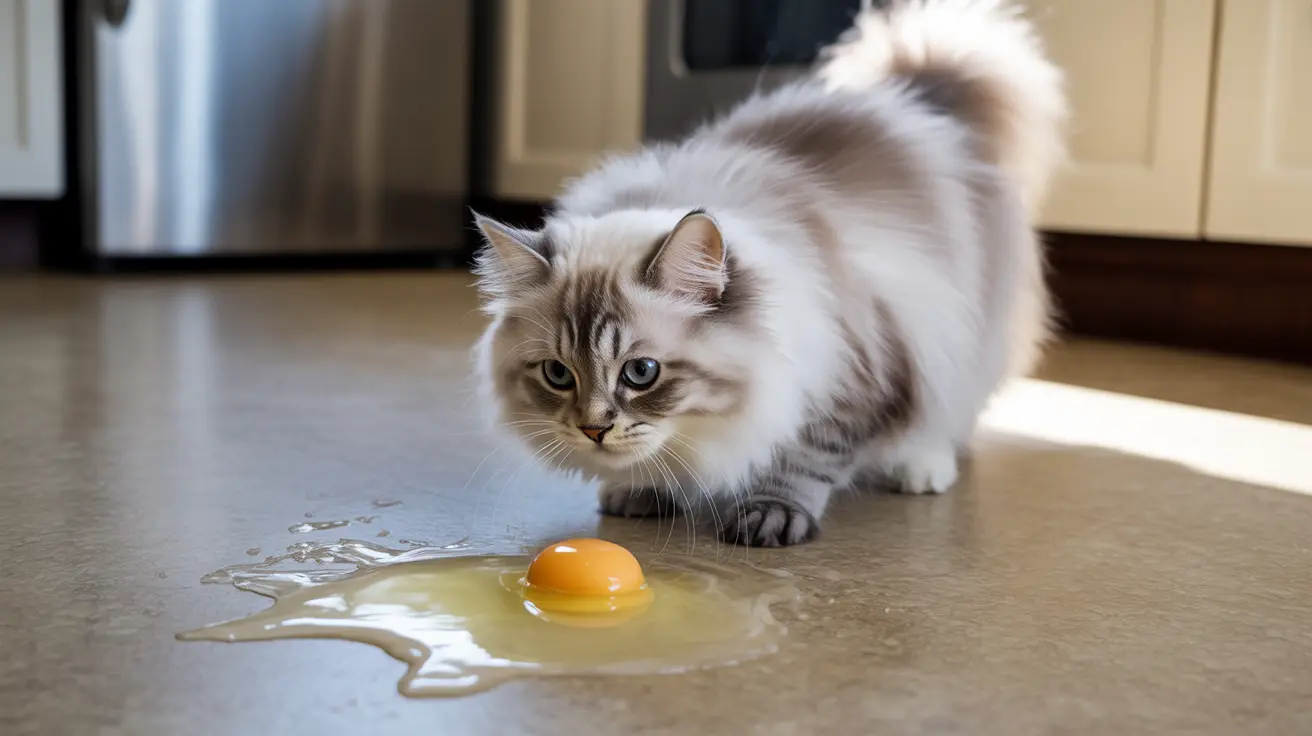Immediate Steps After Your Cat Eats Raw Egg
If you've discovered your cat has eaten raw egg, staying calm and taking appropriate action is crucial. First, determine how much raw egg was consumed and how long ago the incident occurred. This information will be valuable when consulting with your veterinarian.
Contact Your Veterinarian
Reach out to your veterinarian immediately, especially if your cat is young, elderly, or has a compromised immune system. They can provide personalized guidance based on your cat's specific situation and health history.
Monitoring Your Cat's Health
After raw egg consumption, careful observation of your cat's behavior and health is essential. Watch for these key symptoms:
- Vomiting or diarrhea
- Lethargy or unusual behavior
- Loss of appetite
- Fever
- Signs of abdominal discomfort
Understanding the Risks of Raw Egg Consumption
Bacterial Contamination
Raw eggs can harbor dangerous bacteria like Salmonella and E. coli. These pathogens can cause severe gastrointestinal issues in cats and may even be transmitted to humans in the household.
Nutritional Concerns
Raw egg whites contain avidin, a protein that binds to biotin (Vitamin B7). Regular consumption of raw eggs could lead to biotin deficiency, affecting your cat's skin, coat, and overall health.
Safe Ways to Feed Eggs to Cats
While raw eggs pose risks, properly cooked eggs can be a nutritious treat for cats. Here's how to safely incorporate eggs into your cat's diet:
- Always serve fully cooked eggs
- Avoid seasonings, salt, or oils
- Limit egg treats to once or twice weekly
- Start with small portions to test tolerance
Prevention Tips for the Future
To prevent future incidents of raw egg consumption:
- Store eggs securely where cats can't access them
- Clean up egg spills immediately
- Keep cats away from food preparation areas
- Ensure all household members know not to feed raw eggs to pets
Frequently Asked Questions
Kedim çiğ yumurta yedi, ne yapmalıyım?
If your cat ate raw egg, contact your veterinarian immediately, monitor for symptoms like vomiting or diarrhea, and ensure fresh water is available. Don't induce vomiting unless specifically instructed by your vet.
Kediler çiğ yumurta yerse hangi belirtileri gözlemlemeliyim?
Watch for symptoms including vomiting, diarrhea, lethargy, fever, loss of appetite, and signs of abdominal pain. If any of these symptoms appear, seek immediate veterinary care.
Kedilere yumurta nasıl verilmeli, çiğ mi yoksa pişmiş mi?
Always serve eggs fully cooked (boiled or scrambled without additives). Never feed raw eggs to cats due to the risk of bacterial infection and biotin deficiency.
Çiğ yumurtanın kedilere zararları nelerdir?
Raw eggs can cause bacterial infections (Salmonella, E. coli), biotin deficiency, and digestive problems. They may also trigger allergic reactions in some cats.
Kedime haşlanmış yumurta vermek güvenli midir?
Yes, hard-boiled eggs are safe for cats in moderation. Serve plain, without seasonings, and limit to small portions as an occasional treat.
Conclusion
While raw egg consumption can be concerning, prompt action and proper monitoring can help ensure your cat's safety. Remember to always serve eggs fully cooked and consult with your veterinarian about any dietary changes or concerns. By following these guidelines, you can protect your cat from the risks associated with raw egg consumption while still safely incorporating eggs into their diet when appropriate.






